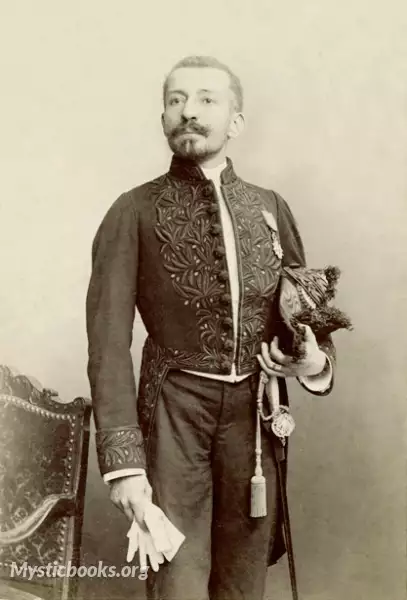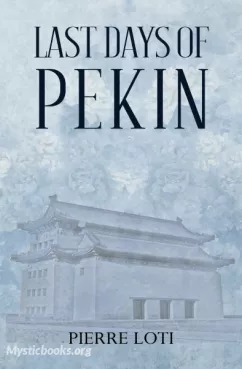
Timeline
Title
Country/Nationality
Pierre Loti
Pierre Loti was a French naval officer and novelist, known for his exotic novels and short stories.
Born to a Protestant family, Loti's education began in his birthplace, Rochefort, Charente-Maritime. At age 17 he entered the naval school in Brest and studied at Le Borda. He gradually rose in his profession, attaining the rank of captain in 1906. In January 1910 he went on the reserve list. He was in the habit of claiming that he never read books, saying to the Académie française on the day of his introduction (7 April 1892), "Loti ne sait pas lire" ("Loti doesn't know how to read"), but testimony from friends proves otherwise, as does his library, much of which is preserved in his house in Rochefort. In 1876 fellow naval officers persuaded him to turn into a novel passages in his diary dealing with some curious experiences in Istanbul. The result was the anonymously published Aziyadé (1879), part romance, part autobiography, like the work of his admirer, Marcel Proust, after him.
Loti proceeded to the South Seas as part of his naval training, living in Papeete, Tahiti for two months in 1872, where he "went native". Several years later he published the Polynesian idyll originally titled Rarahu (1880), which was reprinted as Le Mariage de Loti, the first book to introduce him to the wider public. His narrator explains that the name Loti was bestowed on him by the natives, after his mispronunciation of "roti" (a red flower). The book inspired the 1883 opera Lakmé by Léo Delibes. Loti Bain, a shallow pool at the base of the Fautaua Falls, is named for Loti.
This was followed by Le Roman d'un spahi (1881), a record of the melancholy adventures of a soldier in Senegal. In 1882, Loti issued a collection of four shorter pieces, three stories and a travel piece, under the general title of Fleurs d'ennui (Flowers of Boredom).
In 1883 Loti achieved a wider public spotlight. First, he published the critically acclaimed Mon Frère Yves (My Brother Yves), a novel describing the life of a French naval officer (Pierre Loti), and a Breton sailor (Yves Kermadec, inspired by Loti companion Pierre le Cor), described by Edmund Gosse as "one of his most characteristic productions". Second, while serving in Tonkin (northern Vietnam) as a naval officer aboard the ironclad Atalante, Loti published three articles in the newspaper Le Figaro in September and October 1883 about atrocities that occurred during the Battle of Thuận An (20 August 1883), an attack by the French on the Vietnamese coastal defenses of Hue. He was threatened with suspension from the service for this indiscretion, thus gaining wider public notoriety. In 1884 his friend Émile Pouvillon dedicated his novel L'Innocent to Loti.
Books by Pierre Loti

War
The present book is one of his few works of non-fiction, a small collection of letters and diary entries that describe his views and experiences in the wars and military operations in which he participated. Besides World War I, he also sheds light up...

Lives of Two Cats
It provides a charming and touching portrayal of the lives of two cats and their adventures. In "Lives of Two Cats," Pierre Loti brings to life the experiences and perspectives of two felines, named Raoule and Missi, as they explore their world and...

The Last Days of Pekin
This timeless literary masterpiece takes readers on an enchanting adventure through the heart of Imperial China. Loti's vivid storytelling and evocative descriptions transport readers to a bygone era, immersing them in a world of tradition, mystery,...

An Iceland Fisherman
This takes readers on a captivating journey to the remote and unforgiving shores of Iceland. In this gripping tale, we follow the life of Yann Gaos, a young fisherman whose fate is intertwined with the harsh realities of the sea. Yann, a humble and...

Madame Chrysantheme
Madame Chrysantheme is a semi-autobiographical novel by Pierre Loti, published in 1887. It narrates the author's experiences in Nagasaki, Japan, where he falls in love with and marries a young Japanese woman, whom he calls 'Chrysantheme.' The book ex...